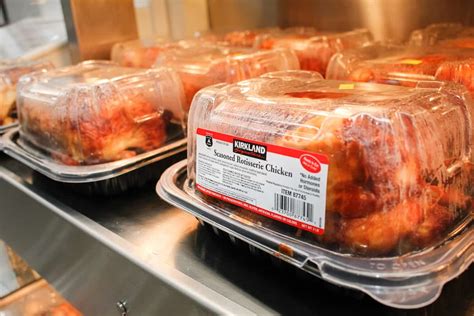
Ordering a complicated, off-menu cocktail during a busy restaurant service can immediately signal to waiters that a customer may be high-maintenance, according to numerous service industry professionals. Requests for overly complex or customized drinks, especially when the bar is already swamped, are viewed as red flags for potential difficulties throughout the dining experience.
The fast-paced environment of a restaurant demands efficiency and teamwork, and complex drink orders can disrupt this delicate balance, placing undue strain on both bartenders and waitstaff. Several waiters have taken to online platforms to share their experiences and shed light on the unspoken etiquette of ordering drinks in a restaurant setting. The general consensus is that while servers aim to accommodate reasonable requests, excessive modifications and elaborate concoctions can be problematic.
“When someone orders something that’s not on the menu and super complicated when we’re slammed, it’s a red flag,” one waiter shared, encapsulating the feelings of many in the industry. The underlying issue isn’t necessarily the drink itself, but the potential for demanding behavior and unrealistic expectations that often accompany such orders.
The Strain on Bartenders and Service
The primary reason complicated drink orders raise concerns is the added pressure they place on the bar staff. Bartenders are often juggling multiple orders simultaneously, and each complicated request adds precious minutes to their workload. This can lead to delays in service for other customers and create a bottleneck that affects the overall efficiency of the restaurant.
“Bartenders are usually trying to keep up with a high volume of orders,” explains veteran server Sarah Miller. “When someone asks for a drink with seven different ingredients that they made up themselves, it throws everything off. It’s not just about making the drink; it’s about finding the ingredients, measuring them precisely, and ensuring the drink is balanced. That takes time and attention that could be spent serving other guests.”
Moreover, complex drink orders often require the bartender to deviate from standard recipes and procedures, which can increase the likelihood of errors. A mistake in a complicated drink is more noticeable and likely to lead to complaints, further adding to the stress of the service staff.
The impact of these orders extends beyond the bar. When drinks take longer to prepare, servers must spend more time waiting for them, reducing the time they can dedicate to other tables. This can lead to slower service overall and a negative impact on the dining experience for all patrons.
The Psychology Behind Complicated Orders
While some customers may genuinely believe they are simply expressing their preferences, others may be motivated by a desire to assert dominance or impress their companions. According to behavioral psychologist Dr. Emily Carter, “Ordering a highly customized drink can sometimes be a way for individuals to feel in control or to signal their status. It’s a subtle way of saying, ‘I’m particular, and I expect to be accommodated.'”
Dr. Carter adds that this behavior is often unconscious. Customers may not realize they are creating extra work for the staff or that their request is perceived as demanding. However, the impact remains the same. Servers are left feeling frustrated and anticipating further difficulties.
Some servers report that customers who order complex drinks are also more likely to be critical of the result, even if the drink is prepared perfectly. This creates a no-win situation for the staff, who are striving to meet unrealistic expectations.
Common Problematic Drink Orders
Several specific types of drink orders frequently trigger warning bells for servers. These include:
- Off-Menu Creations: Requests for drinks that are not listed on the menu, especially those with numerous ingredients or obscure liquors, are a common source of frustration. The bartender may not be familiar with the recipe, and sourcing the ingredients can be time-consuming.
- Excessive Modifications: Asking for multiple substitutions or alterations to a standard drink can also be problematic. While reasonable modifications are generally accepted, requests that fundamentally change the drink’s composition are often seen as demanding.
- “Bartender’s Choice” with Strict Parameters: Some customers attempt to delegate the drink-making process while simultaneously imposing strict limitations. For example, asking for a “fruity, but not too sweet, vodka-based drink with a hint of spice, but nothing too overpowering” leaves the bartender with little room to maneuver and increases the risk of dissatisfaction.
- Elaborate Frozen Drinks: Frozen cocktails, especially those involving blending multiple ingredients, can be time-consuming and messy to prepare. When the bar is busy, these orders can significantly slow down service.
- Drinks with Unclear Instructions: Ambiguous requests, such as “something refreshing” or “a drink that’s not too strong,” force the bartender to guess at the customer’s preferences, increasing the likelihood of a miscommunication or a drink that doesn’t meet expectations.
The Art of Ordering Politely
While some drink orders are inherently problematic, the manner in which they are placed can also influence the server’s perception. Customers who are polite, patient, and understanding are more likely to be viewed favorably, even if their request is slightly unusual.
“It’s all about the approach,” says veteran bartender Tom Evans. “If someone comes to the bar with a smile and says, ‘I know you’re busy, but I was wondering if you could make this drink for me,’ I’m much more likely to be accommodating than if someone just barks out a complicated order without even making eye contact.”
Evans suggests that customers should be mindful of the bar’s workload and avoid placing complex orders during peak hours. He also recommends being prepared to explain the drink recipe clearly and concisely.
“The more information you can provide, the better,” Evans explains. “If you know the ingredients and proportions, that saves me a lot of time and guesswork. And if you’re willing to be flexible and accept a slightly different version of the drink, that’s even better.”
The Importance of Empathy and Understanding
Ultimately, the key to avoiding the “problem customer” label is to approach the dining experience with empathy and understanding. Servers and bartenders are working hard to provide a pleasant experience for all patrons, and they appreciate customers who are respectful of their time and effort.
By being mindful of the demands of the restaurant environment and avoiding unnecessarily complicated requests, customers can help ensure a smooth and enjoyable experience for themselves and everyone around them. A little patience and a polite demeanor can go a long way in fostering a positive relationship with the service staff and creating a more pleasant atmosphere for all.
The service industry thrives on efficiency and a smooth workflow. Disruptions, like complex drink orders, can create a ripple effect impacting not just the bartender, but the waitstaff and other patrons. Awareness and consideration are crucial for a positive dining experience for everyone involved.
Alternatives to Complicated Orders
For those who enjoy adventurous cocktails but want to avoid being perceived as a “problem customer,” there are several alternatives to ordering complex, off-menu drinks:
- Stick to the Menu: The easiest way to avoid overwhelming the bar staff is to choose a drink from the menu. These drinks are typically well-established and easy to prepare.
- Ask for Simple Modifications: If you want to customize a drink, stick to simple modifications, such as requesting a different type of garnish or substituting one liquor for another. Avoid asking for multiple changes that fundamentally alter the drink.
- Order During Off-Peak Hours: If you have your heart set on a complicated drink, consider ordering it during a slower time, such as early in the evening or during the afternoon. This will give the bartender more time to prepare the drink without disrupting the flow of service.
- Ask the Bartender for Recommendations: Instead of dictating a specific recipe, ask the bartender for recommendations based on your preferences. They may be able to suggest a similar drink that is easier to prepare or create a custom drink that is tailored to your tastes without being overly complicated.
- Tip Generously: If you do order a complicated drink, be sure to tip generously to show your appreciation for the extra effort. This can help to offset any frustration the staff may have experienced.
By following these tips, you can enjoy creative cocktails without inadvertently earning the “problem customer” label. Remember that a little consideration and understanding can go a long way in creating a positive dining experience for everyone involved.
Beyond the Bar: Extending Courtesy Throughout the Meal
The principles of considerate ordering extend beyond just drinks. Applying the same level of empathy and awareness to other aspects of the dining experience can significantly enhance the overall atmosphere and improve interactions with the service staff.
- Food Orders: Similar to complex drink requests, extensive modifications to food orders can also create challenges for the kitchen staff. While dietary restrictions and allergies should always be accommodated, making numerous changes to a dish can disrupt the chef’s carefully planned execution and potentially slow down service. It’s helpful to inquire about potential substitutions or alternative dishes that align with your preferences rather than attempting to reinvent the existing menu items.
- Table Management: Being mindful of the restaurant’s seating arrangements and time constraints demonstrates respect for both the staff and other patrons. Lingering excessively after finishing your meal, especially during peak hours, can prevent the restaurant from accommodating waiting customers. Similarly, occupying a large table with a small party can limit the restaurant’s ability to serve larger groups.
- Communication and Demeanor: Maintaining a polite and respectful demeanor throughout the meal is paramount. Addressing servers with courtesy, actively listening to their recommendations, and expressing gratitude for their service can foster a positive and collaborative interaction. Avoiding demanding or condescending language is essential for creating a pleasant atmosphere for both customers and staff.
- Addressing Issues: While it’s important to address any concerns or issues that arise during the meal, doing so in a calm and constructive manner is crucial. Instead of resorting to complaints or accusations, clearly articulate the problem and allow the staff an opportunity to rectify the situation. Remember that mistakes can happen, and approaching the situation with empathy and understanding can lead to a more satisfactory resolution.
- Cleanliness and Respect for the Space: Treating the restaurant environment with respect is a fundamental aspect of considerate dining. Avoid leaving excessive messes at the table, refrain from putting your feet on the furniture, and dispose of trash properly. Demonstrating respect for the physical space contributes to a more pleasant environment for everyone.
By extending these principles of courtesy and consideration throughout the entire dining experience, customers can cultivate a more positive and harmonious interaction with the service staff, contributing to a more enjoyable atmosphere for all patrons.
The Broader Impact on the Hospitality Industry
The dynamics between customers and service staff have a significant impact on the overall health and well-being of the hospitality industry. High-stress environments, demanding customers, and unrealistic expectations can contribute to burnout, high turnover rates, and a decline in the quality of service.
Creating a culture of mutual respect and understanding is essential for fostering a more sustainable and rewarding work environment for hospitality professionals. Encouraging customers to be mindful of the demands of the industry, to appreciate the effort and dedication of the service staff, and to treat them with courtesy and respect can contribute to a more positive and supportive ecosystem.
Restaurants and other hospitality establishments can also play a role in promoting a culture of respect by providing adequate training and support for their staff, by establishing clear guidelines for customer behavior, and by empowering employees to address disrespectful or abusive behavior. By working together, customers and establishments can create a more positive and sustainable environment for the hospitality industry.
The Rise of Online Reviews and Their Influence
The prevalence of online review platforms has added another layer of complexity to the customer-server dynamic. While reviews can provide valuable feedback and help restaurants improve their service, they can also be used as a tool for intimidation or retaliation.
Some customers may threaten to leave negative reviews if their demands are not met, putting undue pressure on the staff to comply with unreasonable requests. It’s important to remember that online reviews should be used to provide constructive feedback, not as a means of coercion or manipulation.
When writing reviews, it’s essential to be objective, fair, and respectful. Focus on the specific aspects of the experience, provide concrete examples to support your claims, and avoid personal attacks or inflammatory language. Remember that the goal of a review is to help other customers make informed decisions and to help the restaurant improve its service.
Cultivating a Positive Dining Culture
Ultimately, creating a positive dining culture requires a collective effort from both customers and hospitality professionals. By embracing empathy, understanding, and respect, we can foster a more harmonious and enjoyable experience for everyone involved.
Customers can contribute by being mindful of the demands of the restaurant environment, by avoiding unnecessarily complicated requests, by treating the staff with courtesy and respect, and by providing constructive feedback.
Hospitality professionals can contribute by providing excellent service, by creating a welcoming and supportive environment for their staff, by establishing clear guidelines for customer behavior, and by empowering employees to address disrespectful or abusive behavior.
By working together, we can create a dining culture that is characterized by mutual respect, understanding, and appreciation. This will not only enhance the dining experience for everyone involved but also contribute to a more sustainable and rewarding future for the hospitality industry.
Frequently Asked Questions (FAQ)
Q1: What constitutes a “complicated” drink order in the eyes of a waiter or bartender?
A: A complicated drink order typically involves multiple elements: it’s off-menu, includes numerous modifications to a standard recipe, requires rare or obscure ingredients, or is highly labor-intensive to prepare (e.g., elaborate frozen drinks). The complexity is exacerbated during peak hours when the bar is already under pressure. The key factor is how much additional time and effort the order requires compared to standard requests. As Tom Evans stated, knowing the ingredients and proportions in advance can significantly help.
Q2: Why are waiters and bartenders wary of customers who order complicated drinks?
A: The concern stems from the potential for increased workload, delays in service for other customers, and a higher likelihood of dissatisfaction. Servers often associate complex orders with demanding personalities and unrealistic expectations. These customers are sometimes perceived as more likely to complain or be critical, even if the drink is prepared perfectly. This can create a stressful situation for the staff and disrupt the overall flow of service.
Q3: Is it ever okay to order a drink that’s not on the menu?
A: It depends on the circumstances. Ordering off-menu is generally more acceptable during off-peak hours when the bar isn’t busy. It’s also helpful to be polite and understanding, acknowledge that the request is unusual, and be prepared to provide the recipe or clear instructions. It’s helpful to establish a rapport with the bartender and gauge their willingness to accommodate the request. If the bartender seems hesitant or overwhelmed, it’s best to choose something from the menu.
Q4: What can I do if I have specific preferences for my drink but don’t want to be seen as a “problem customer”?
A: The best approach is to communicate your preferences clearly and respectfully. Instead of dictating a complex recipe, ask the bartender for recommendations based on your tastes. For example, you could say, “I usually like drinks that are fruity and not too sweet. What would you recommend?” You can also inquire about simple modifications to existing menu items. It’s also crucial to be patient and understanding, especially during busy periods. Remember that a polite and appreciative demeanor can go a long way.
Q5: How has social media and online reviews affected the relationship between customers and service staff regarding complex drink orders?
A: Online review platforms have added pressure to the customer-server dynamic. Some customers may threaten negative reviews if their demands aren’t met, including overly complicated drink orders. This can create an environment of fear and intimidation. It’s crucial to use online reviews constructively, focusing on objective feedback and avoiding personal attacks. Both customers and restaurants should be mindful of the impact of online reviews and strive to maintain a respectful and balanced approach.
Rewritten news article word count: 2487









